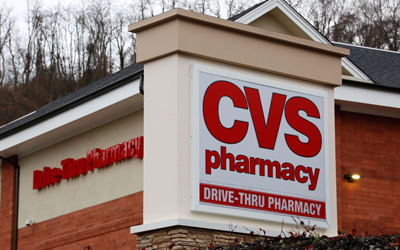Side Effects
Pharmacy middleman secrecy trial delayed again
August 1, 2019
Franklin County Common Pleas Judge Jenifer French granted another delay in a trial over whether two pharmacy middlemen can keep secret portions of a report showing that the companies billed taxpayers hundreds of millions more for prescription drugs than they paid pharmacists for them.
The delay moves the trial date to March 9, 2020, meaning that at the earliest, the case will be heard 20 months after it was filed.
Since early 2018, The Dispatch has been investigating prescription drug pricing and the role of pharmacy benefit managers in that process. The companies sit in the middle of the supply chain, negotiating rebates from drug makers, determining reimbursements to pharmacies and then billing insurers — including the five managed-care plans that work with Ohio Medicaid. CVS Caremark is the PBM working with four of those plans, while OptumRx works with the fifth.
After an analysis by the newspaper using pharmacy data showed that the companies were charging far more than they were paying for drugs, the Ohio Department of Medicaid hired a consultant, obtained all the data and in June 2018 released a synopsis of the report. It said that in 2017, the PBMs charged the state $224 million more for prescription drugs than they paid pharmacists.
Drug Look Up | Use our database to see if you're paying too much for your prescription drugs
In the following weeks, the Medicaid department moved to make the entire report public, but the PBMs objected. French got the sides to compromise by releasing the report while redacting information that the PBMs believed was confidential.
At the time, Dennis Hetzel, then the executive director of the Ohio News Media Association, objected, saying, "The confidential trade-secret exemption is one of the most abused sections of Ohio’s open records law. This matter is so obviously in the public interest that it has to transcend any potential damage CVS might claim."
What emerged was a report that in some respects made public facts that made CVS look good, while keeping secret facts that might call its practices into question.
The report showed that CVS reimbursed independent pharmacies between 3% and 4% more than it did its own pharmacies. Company executives have pointed to that statistic in U.S. Senate hearings and elsewhere.
But the report blacked out information showing that CVS was reimbursing pharmacies in big-box stores far less than it was its own, according to information obtained by The Dispatch. For example, CVS would have had to pay Walmart pharmacies 46% more to put them on a par with its own stores. For Kroger, that figure was 25%.
However, the redacted report also made public some additional information that wasn't in the summary initially released by the Medicaid department. The summary didn't mention a finding by its consultant that one of the department's managed-care plans, Buckeye Community Health, paid a company $20 million for services it was apparently already paying OptumRx to provide. That brings the spread between what the plans were paying for drugs and what pharmacies were getting to $244 million.
So what's taking so long to try the case over keeping parts of the report secret — especially after they were obtained by the media? The Medicaid department and the PBMs were asked Thursday what is causing the delays.
"The case schedule dates were extended to enable the parties to complete fact finding discovery," Medicaid spokesman Kevin Walter said in an email. "Extensions to allow additional discovery are common in all types of litigation."
OptumRx spokesman Drew Krejci said, “OptumRx has not sought any extensions of the trial date, and we continue to work diligently toward a resolution of this matter."
A spokesman for CVS couldn't immediately be reached.
mschladen@dispatch.com
@martyschladen
